Exclusive : How the EU is continuing to waste the UK’s money in Africa
Court of Auditors criticises EU’s £4.3bn Africa fund, part paid for by British taxpayers
Montage © Facts4EU.Org 2024
The money in this case is ‘off-budget’ and therefore not even declared as part of the UK’s budget contributions
A critical report has been published by the EU’s ‘European Court of Auditors’ regarding an ‘off-budget’ EU fund of €5 billion (approx £4.3bn GBP) into which the UK paid handsomely. As we repeatedly reported for years, this money was never counted by HM Treasury or other government bodies as being part of the UK’s cost of membership of the European Union.
Today the Facts4EU.Org think-tank can reveal some of the ways in which this money was wasted and the concerns expressed by the EU’s auditors about who in Africa actually received it.
Thanks to Theresa May's 'Divorce Bill', the UK continues to contribute to what follows.
Brexit Facts4EU.Org Summary
Examples of how this money - paid to the EU by the British taxpayer - was wasted
- We paid for an electric food blender for a poor African school in a village hut with no electricity supply
- We paid for a radio station in the Sahel to “promote youth expression”, which mostly played pop music
- We paid money to beneficiaries whom no-one in the EU can identify
- We paid for the restoration of a beautiful ‘corniche sea-front’ for Benghazi, Libya
- We paid for poultry farm facilities lying unused in the Gambia
- Only 2 out of 10 of the ECA’s recommendations in its last (2018) report have been fully implemented
- Money is not going to the top priorities for preventing illegal migration – the Fund’s main objective
And in Africa all this money is badged “from the EU” – the British people get no credit for their generosity.
The findings of the EU Court of Auditors (ECA) about the wastage of money
The purpose of this €5bn ‘Trust Fund for Africa’ was to contribute to better migration management in Africa and reduce migration into the EU via returns and integration, as well as improved border control and persuading Africans not to make the journey to the EU.
Below we cite several examples from the findings of the EU’s Court of Auditors (ECA) during their inspections.
Examples of what the ECA found
1. Electric food blender for school with no electricity
The EU has been funding sports and kitchen equipment for schools with urgent basic infrastructure needs. Below is an example of what the European Court of Auditors found in the Sahel, a desert region of north Africa.
The EU provided an electric food blender "to complement training in food preparation and conservation" to a very basic village school with no access to electricity.
Credit: ECA - click to enlarge
2. Funding pop music
The EU funded the establishment of a radio station in the Sahel ‘to promote youth expression’.
”In practice the new station mainly broadcasts music,” says the ECA. “It is difficult to establish a link with the priority criteria”.
3. Auditors were “unable to identify beneficiaries” of funding
An essential element of the work of the Court of Auditors was to satisfy themselves where all the money went. It seems they were unable to do this.
“We were unable to visit all the beneficiaries and projects we selected for our sample, either because the project implementers, the EU delegation or the beneficiary could not reach the sampled beneficiaries, did not grant us the authorisations to visit the premises or because of time and security constraints. Five project implementers did not provide all the information we requested (missing elements included invoices, attendance lists and beneficiary names). These problems impacted half of the projects in the sample. As a result, we were able to check neither the accuracy nor the sustainability of the reported outputs for parts of our sample.”
4. Non-existent craft workshop
Five of the 16 projects inspected by the ECA were ‘still being implemented’. It took on-the-spot visits to uncover some of the reality. To the right is what was supposed to be a finished ‘craft workshop’. The ECA describes it charitably as an "Unfinished craft workshop building, at the end of the contract".
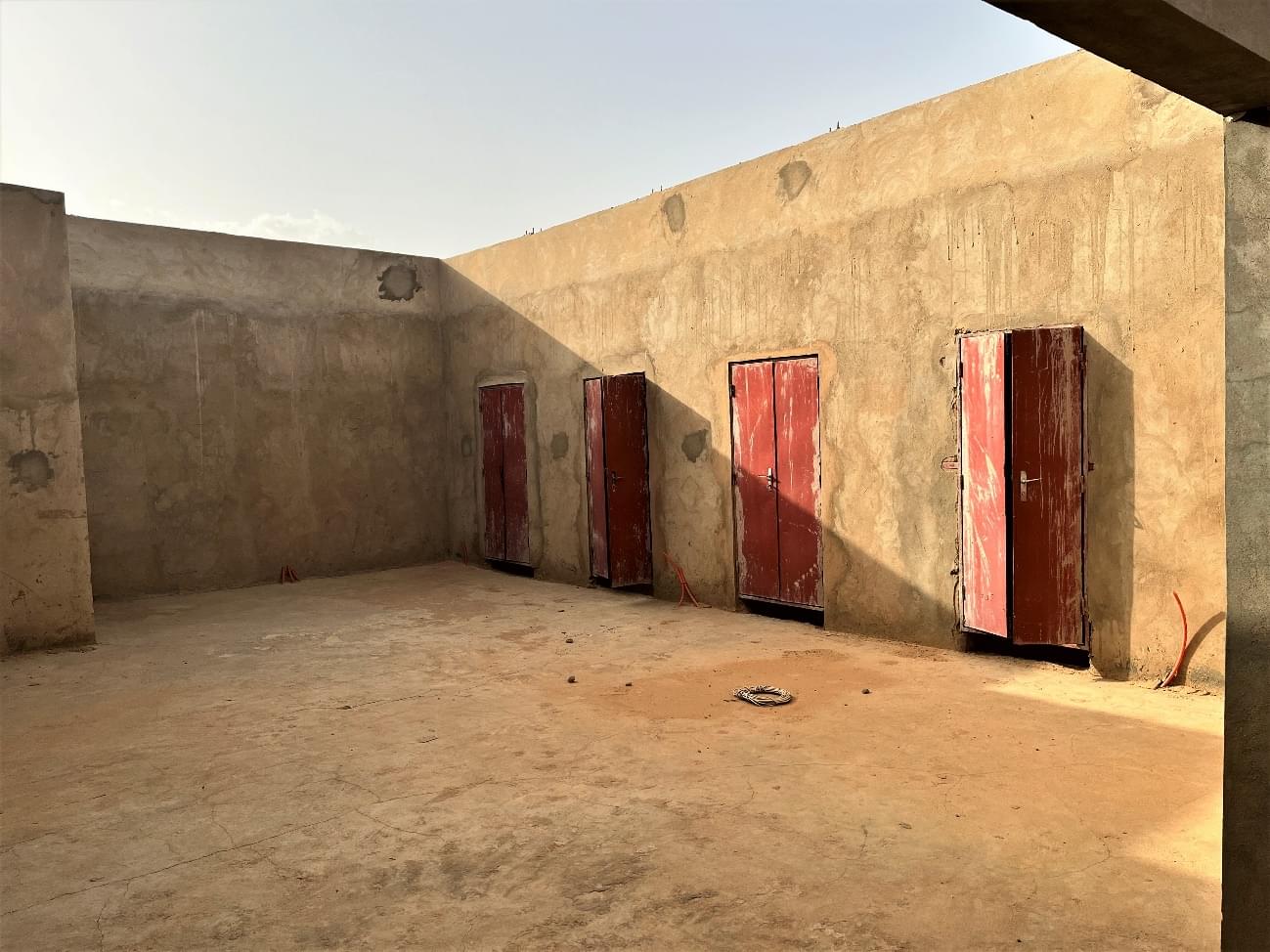
5. The EU’s efforts at supporting food production in Gambia - unsuccessful
Below is another example of repeated EUTF support without results. In 2018, a beneficiary in Gambia received training and a grant to set up a business in the poultry sector as part of reintegration support from a EUTF project. He had received chickens, feed, medication and equipment. In 2022, he received the same support as in 2018, even though he confirmed orally that he had had no previous activity.
“By 2023, when we visited him, he had sold all his animals and this second EU-funded project was also no longer operational.”
6. Search and rescue centre still in containers after more than two years
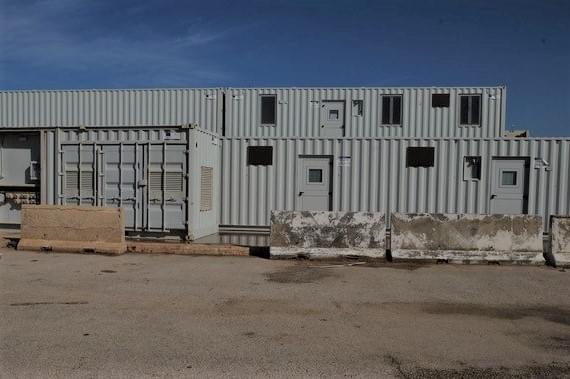
The new national search and rescue coordination centre for Libya is not yet operational, even though EUTF-funded equipment was delivered in December 2021.
To the left is a picture of the locked and unused containers intended to be installed in Tripoli.
7. Corniche Sea-Front, Benghazi 2021
In 2021 the EU re-developed and re-built the prestigious sea-front ‘Corniche’ in Benghazi and handed it over to the municipality. The Mayor of Benghazi Mr Sakar Aboujwarey, said, “The reconstruction will beautify the city and will increase the recreational areas for the residents of Benghazi as well as provide a tourist landmark overlooking the sea."
The EU’s Ambassador Mr Jose Sabadell, stated, “The European Union is proud to have supported the rehabilitation of the Corniche - a landmark at the heart of Benghazi’s old city… We hope that this initiative will provide a space for recreation that the families of Benghazi deserve.”
8. Ethiopia – Major poultry business fully installed but inactive and “on hold”
In 2021 this "EU" fund was used to pay for a poultry processing farm, comprising a solar-powered chicken shed for 1,000 birds, a containerised slaughterhouse, a management office, storehouses, public toilets and a 60 kVA generator. It also financed the premises of the youth association running the farm.
“At the time of our visit, the beneficiary explained it was not economically viable to operate the business. The premises were empty and the association was in contact with non-EU investors to take over the rent.”
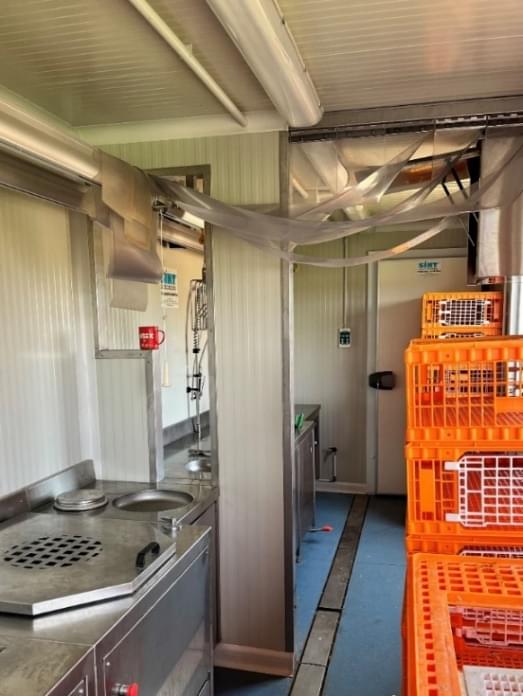
9. What about the main objectives of this EU fund?
“All the projects we examined responded to needs, but not those that were most urgent. The allocation of funding was not based on migration-specific indicators.”
Border management and in particular border control is one of the key aims of the €5bn EU fund, but the ECA was unable to identify tangible results in those projects specifically set up for this purpose.
“…None of them had a results indicator with which to measure the number of rescued/intercepted people or the impact on migratory flows. Overall, there is insufficient data to show the impact of EUTF support, in particular on the reduction of the number of migrants using the central Mediterranean route. Except for 2019 and 2020, the reported number of people returned to Libya has remained higher than the figure of 2016.”
In other words, after all the money the EU has spent, more migrants are leaving Libya than before.
What is the European Court of Auditors?
The European Court of Auditors is the official watchdog reviewing how the EU – principally the Commission and its various agencies – has been spending the trillions of euros it receives from member countries. Amongst other responsibilities it audits the Commission’s accounts each year, as well as checking on specific funds and how they have been used, or mis-used.
During the decades of the UK’s membership of the European Union the United Kingdom was the second-largest funder of the EU’s official budget. It was also the second-largest funder of its ‘off-budget’ funds involving large amounts which never appeared in government accounts as part of the UK’s net contributions. The Emergency Trust Fund for Africa was one of these off-budget funds.
Observations
Eight years after the British people voted to leave the European Union, we are still paying for the EU's mistakes. The fund above is still being spent, with more money yet to be called on from the British government.
This fund was supposed to reduce the number of illegal migrants arriving from Africa, although the numbers continue to rise.
The Facts4EU.Org site and its activities such as conferences, TV & video interviews, forums, etc, are :-
- Advert-free : no annoying distractions or ‘pop-ups’
- Paywall-free : Reading our news and reports does not require you to sign up and pay
- Merchandising-free : We don’t try to sell you t-shirts or coffee mugs advertising us
- Sponsorship-free : No corporate sponsorship funds our reports – we’re independent
- We’re funded by donations from you – the public
The content :-
- Unique, original, well-researched reports
- No ‘re-hashing’ of articles you’ll read elsewhere
- Based on official data, statements and reports, analysed by us
- Transparent sources : Whether it’s the EU Commission, the ONS, or the IMF, we state where we obtained our data
- We rely solely on donations from you – the public - to keep us going
NOTICE : Facts4EU has now scaled back to publishing 5 days-a-week
For over eight years we have worked seven days-a-week. As far as we are aware we are the only organisation of our type to have done this. We are grateful to those of our readers who have made donations but sadly the level of our funding is now such that we must make it stretch for as long as we can. This means team members taking other paid work and reducing our output to five days-a-week.
Please, please help us to carry on our vital work in defence of independence, sovereignty, democracy and freedom by donating today. Thank you.
[ Sources: EU Court of Auditors | EU Commission ] Politicians and journalists can contact us for details, as ever.
Brexit Facts4EU.Org, Wed 09 Oct 2024
Click here to go to our news headlines
Please scroll down to COMMENT on the above article.
And don't forget actually to post your message after you have previewed it!
Since before the EU Referendum, Brexit Facts4EU.Org
has been the most prolific researcher and publisher of Brexit facts in the world.
Supported by MPs, MEPs, & other groups, our work has impact.
We think facts matter. Please donate today, so that we can continue to ensure a clean Brexit is finally delivered.
Paypal Users Only - Choose amount first
Quick One-off
Monthly
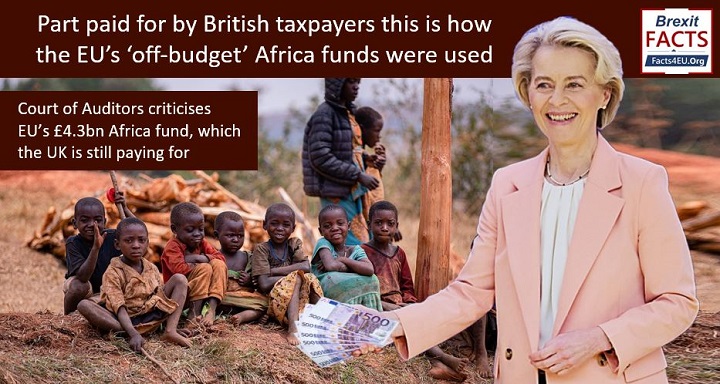
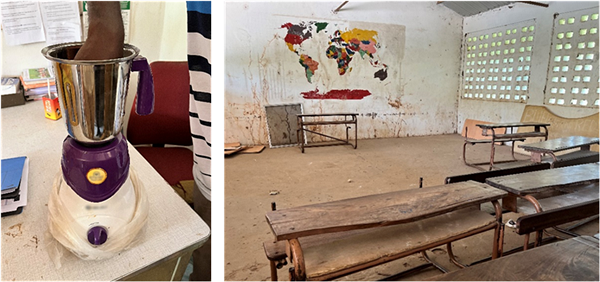


Something to say about this? Scroll down for reader comments